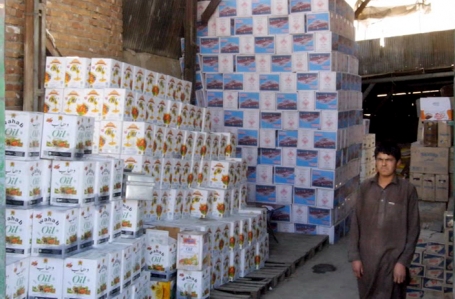
With a new government in place and the long-awaited Bilateral Security Agreement (BSA) with Washington signed, the Afghan economy has already begun to see the rewards and hopes for new growth has appeared.
According to reports, since the end of the presidential election and the formation of the national unity government, business transactions in Kabul have increased and the Afghan currency has risen in value.
This comes after the Afghan economy took a devastating turn for the worst this past year after former President Hamid Karzai refused to sign the BSA with the U.S. and then the election process was derailed. Experts have said the uncertainty surrounding the election and the future of NATO's involvement in Afghanistan caused investors to withdraw and Afghans to refrain from spending.
Despite the remaining weaknesses in the Afghan economy, though, people's optimism for the future since the inauguration of President Ashraf Ghani Ahmadzai and the signing of the BSA has been exhibited in the bazaars.
"During the presidential election my daily income was 100 AFS, but nowadays I make 1000 AFS per day," one cart salesman in Kabul named Kabir told TOLOnews.
Stores that were closed and lacking inventory just weeks ago are now said to be open and fully stocked. And money exchangers have reported improvements of their own. "We have seen positive changes in the market recently," said Amin Jan Khosty, the former head of the Saray Shazada money exchangers.
"I am very happy that we have a national unity government now, our business has improved in days and we have a lot of pickups," a cab driver named Asghar said.
Economists have confirmed the anecdotal reports, arguing that the formation of the new government and concluding of the security pact deal with the U.S. could have positive impacts on the Afghan economy in the near term.
"Beside the recent political change and the speech of the new president showing that he will start big programs, it gives hope to the people and they are now optimistic," said Hasibullah Muhad, a Kabul University professor.
The coming of Eid has no doubt contributed to the increased activity in Afghan markets. Economists have said that consumer prices remain higher than they should be and will continue to until the government steps in to control rates and enforce the law.



